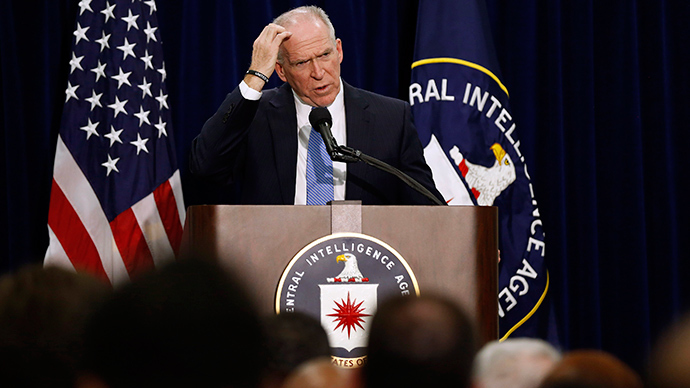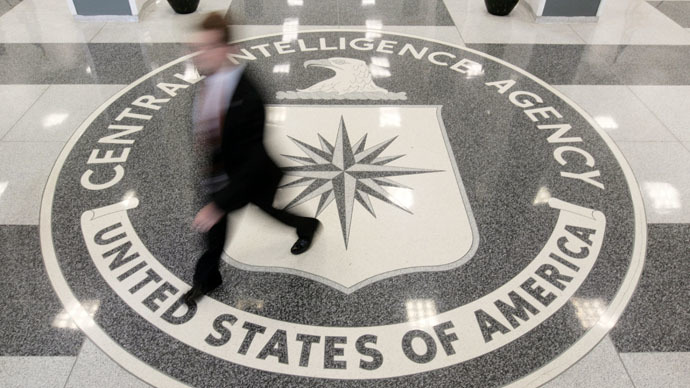‘CIA HQ ordered torture of prisoners, but only low-level staff may face prosecution’

The Senate’s report into CIA torture activities is facing criticism for lacking testimonies from the agency’s staff and the victims, professor Ben Davis told RT. He said that prosecuting low-level staffers isn't enough, as torture orders came from above.
Professor at the University of Toledo College of Law and member of Advocates for US Torture Prosecutions, Ben Davis, called for everyone responsible for torture to be held accountable.
RT:Within the past hour, CIA chief John Brennan said that, overall, the CIA did a good job – and enhanced interrogation methods were legal at the time. Is this an adequate justification and defense of what went on?
Ben Davis: Of course it is not. John Brennan is the head of the CIA. He was one of the people involved in putting in place these torture techniques by the US. And he is defending his agency, so to speak. But of course he is wrong. Two or three weeks ago at the UN Committee Against Torture, we presented our report on advocates for US torture prosecutions about the flawed legal advice that had been given back then. At the time, there were people – I’ll give a couple of names, William Taft was a legal advisor at the State Department. And of course Colin Powell, [the former] secretary of state who said that all of the legal approaches that were being proposed – not to apply the Geneva Convention, etc – were terribly flawed and would be terribly damaging for the US. What we see today is that they were absolutely right at the time and that the people who tortured need to be held accountable by prosecutions.
RT:The Senate's report released earlier this week is heavily redacted. What are the most important points left out, in your opinion?
BD: There had been two major criticisms. One is that the CIA people were not asked to be interviewed, and that has been a criticism. The major error is that they never interviewed any of the actual detainees, many of them sitting now at Guantanamo Bay, like Abu Zubaydah and al Qahtani, to ask them exactly what happened. The ability to know from the detainees, what happened to them has been carefully blocked by the CIA for many years. And this is one of the problems with the way they are operating. They’ve done horrendous things to people and then with the military working with them, they have prevented anyone from any hearing it. This frustrates their lawyers, who represent them in the various military commissions, in their ability to adequately represent them. And it also is a weakness of the report.

It is not to say that staff that they looked at was not useful. I think for me, the most significant part of the report is that you have the low-level people at the CIA, who were doing these torture things, complaining back to CIA headquarters at many points, saying that this is not working or the person told us everything that we have and we’d like to stop. And over and over you see CIA headquarters coming back, saying: ‘continue torturing them.’ So it shows that there was criticism from the operators. We know there was criticism from lawyers in the administration with regards to this. There was criticism from the top jag or top military lawyers in uniform at the time. And all of that was being suppressed in this effort to try to go ahead and torture people and get away with it. What is important now is that they are not getting away with it. And the fact that they are working this very hard, showing that they fear prosecution, which they should.
RT:The UN wants to see prosecutions over this, but the US obviously does not feel the same. The US State Department said the US is willing to learn from its mistakes and change. So Washington appears to believe that making the report public is enough – is there any chance of bringing those responsible to justice?
BD: Absolutely. This is just a classic situation in DC, where the effort is put and pushed by the top people in the government to block any accountability for them. The usual way it said...is that at the top, mistakes were made and then at the bottom people get prosecuted. I hope everyone here still remembers the soldiers who were in Abu Ghraib who were court martialed in 2004-2005 for the horrendous things they did then. We prosecuted those people, and many of them were saying that it was people up the chain of command who asked them to do the horrendous things that they did. So we’ve already decided to prosecute people. The question is only how high up we want to go. From what I heard from John Brennan, it is very clear that what he is planning to do is to basically let the lower level people at the CIA possibly be prosecuted. I think Jose Rodriguez, for example, should definitely be getting a lawyer, who is the head of the Counterterrorism Center. But, in fact, it is process or a plan that was put in place by the former president.
The statements, views and opinions expressed in this column are solely those of the author and do not necessarily represent those of RT.












